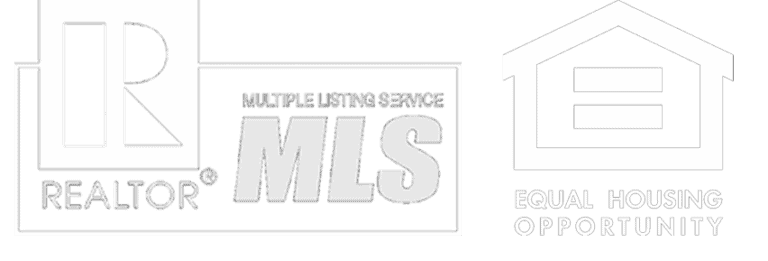Buying a home is one of the biggest financial decisions that most people will make in their lifetime. With so many options and factors to consider, it can be overwhelming for homebuyers to navigate the home financing process. That’s why we’ve put together the ultimate home financing guide to help you make informed decisions and get the best possible deal on your home loan. In this guide, we cover everything from the different types of home loans to credit scores, down payments, closing costs, mortgage rates, and more. Whether you’re a first-time homebuyer or an experienced homeowner, this guide has something for everyone. Read on to learn how to make your dream of homeownership a reality.
- Types of home loans: The different types of home loans available, such as conventional, FHA, VA, and USDA loans. Let’s discuss the pros and cons of each type of loan.
- Credit scores: How do credit scores impact mortgage rates and what steps homebuyers can take to improve their credit scores.
- Down payments: How much of a down payment should homebuyers expect to pay, and how this affects their mortgage rates and overall home financing.
- Closing costs: The various closing costs associated with buying a home, such as appraisal fees, inspection fees, and title fees.
- Mortgage rates: An overview of how mortgage rates work, what factors impact them, and how homebuyers can lock in the best possible rates.
- Pre-approval process: What the pre-approval process involves, and why it’s important for homebuyers to get pre-approved before house hunting.
- Choosing a lender: Tips on how to choose a reputable lender, and what to look for in a lender.
- Home affordability: Determine how much you can afford, and what factors impact affordability.
- Refinancing: Information on when and how to refinance a home loan.
- Common mistakes to avoid: A list of common mistakes homebuyers make during the financing process, and how to avoid them.
Types of home loans
There are different types of home loans available, each with their own pros and cons. A conventional loan is the most common type of loan and is not backed by the government. FHA loans are backed by the Federal Housing Administration and are popular with first-time homebuyers. VA loans are offered to veterans and active military personnel and are guaranteed by the Department of Veterans Affairs. USDA loans are for homebuyers in rural areas who meet certain income requirements. It’s important for homebuyers to understand the different types of loans and choose the one that’s best for their situation.
Credit scores
Credit scores are a key factor in mortgage rates. The higher a person’s credit score, the better the mortgage rate they can get. Homebuyers should check their credit scores before applying for a mortgage and take steps to improve their scores if necessary. This may include paying down debt, disputing errors on their credit report, and making payments on time. It’s important for homebuyers to be aware of their credit scores and take action to improve them before applying for a home loan.
Down payments
Homebuyers should be prepared to make a down payment when buying a home. The amount of the down payment can vary depending on the loan type and lender. Generally, the more a person puts down, the lower their monthly mortgage payment will be. It’s important for homebuyers to save up for a down payment and consider how it will impact their overall home financing. Down payment assistance programs may also be available to help homebuyers who have difficulty coming up with the required amount.
Closing costs
Closing costs are the fees associated with buying a home and can include appraisal fees, inspection fees, title fees, and more. These costs can add up quickly, so it’s important for homebuyers to budget for them when planning their home purchase. Some lenders may offer to pay a portion of the closing costs, so it’s worth shopping around to find the best deal. Homebuyers should also review the closing disclosure carefully to ensure they understand all the costs associated with their home purchase.
Mortgage rates
Mortgage rates are the interest rates charged on home loans. They can vary depending on a variety of factors, such as the type of loan, the borrower’s credit score, and the current state of the economy. Homebuyers should keep an eye on mortgage rates and consider locking in a rate when they’re favorable. This can help them save money over the life of their loan. Shopping around for lenders and comparing rates can also help homebuyers find the best mortgage rate for their needs.
Pre-approval process
The pre-approval process involves getting pre-approved for a mortgage before house hunting. This involves submitting financial documents to a lender, who will review the information and determine how much the borrower can afford to borrow. Homebuyers should get pre-approved before house hunting to avoid falling in love with a home they can’t afford. Pre-approval can also give homebuyers an advantage when making an offer on a home, as it shows the seller that they are serious about buying and have already taken steps to secure financing.
Choosing a lender
Choosing a reputable lender is important when financing a home. Homebuyers should look for a lender with a good reputation, reasonable rates, and excellent customer service. They should also consider the type of loan they need and whether the lender specializes in that type of loan. Homebuyers should shop around and compare lenders to find the best fit for their needs. Reading reviews and asking for recommendations from friends and family can also help homebuyers find a lender they can
Home affordability
Homebuyers should consider their budget and how much they can afford to spend on a home. Factors such as income, debt, and expenses should be taken into account when determining home affordability. It’s important for homebuyers to remember that there are additional costs associated with owning a home, such as property taxes, insurance, and maintenance. They should also consider how their monthly mortgage payment will fit into their overall budget. It’s a good idea to get pre-approved for a mortgage to help determine home affordability and to avoid falling in love with a home that’s out of reach.
Refinancing
Refinancing is the process of replacing an existing mortgage with a new one. Homeowners may refinance to lower their monthly mortgage payment, shorten the length of their loan, or take cash out of their home equity. Refinancing can be a good option for homeowners who want to save money on their mortgage or change the terms of their loan. Homeowners should consider the costs associated with refinancing and weigh the potential benefits before deciding to refinance.
Common mistakes to avoid
There are several common mistakes that homebuyers can make during the financing process. These include not checking their credit score before applying for a mortgage, not shopping around for lenders, not getting pre-approved before house hunting, and not budgeting for closing costs and other expenses. Homebuyers should also avoid making large purchases or taking on new debt before closing on their home loan, as this can impact their credit score and their ability to secure financing. By avoiding these common mistakes, homebuyers can increase their chances of a successful home purchase and a smooth financing process.







